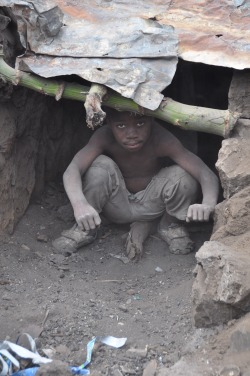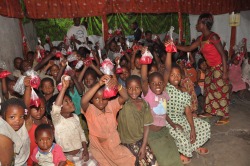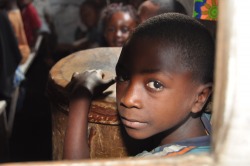Every day we learn more and more about the Congolese. Sure, we read books before coming, we heard over and over, “The Congo is one of the toughest places to work.” We heard about the terrible things going on, but no one can really understand the depths of a problem without experiencing the people and the culture. Likewise, if you don’t understand the depth of a problem, you’ll fail to find a practical solution. We came here to learn about the DR Congo. People like to place blanket statements over Africa and it’s really sad because not all African countries are the same. So you can’t treat the issues all the same.
Zambia prepared us for the DR Congo and Overland Missions taught us a lot about how they dealt with issues in Zambia. However, we are quickly realizing that dealing with social issues in the DRC is very different from those in Zambia. Schooling is a good example, in many African countries, schools are paid for by the government even if the curriculum is a little behind, at least it’s free school. In the DRC, schooling is not available for everyone, the government does not pay teachers and all children must pay for their school. This is a huge issue because of the extreme poverty in the country. People are poorer here than in Zambia, but the cost of living is much higher than, about double. As a matter of fact, the prices here are probably equivalent to those in America, sometimes more.
There are currently (at least) four recognized militia groups in this North East Province of the DRC: Mai Mai, FDLR, LRA and Interhamwe. Along with those are the FRDC, which is the DRC military which in many ways, aren’t much better the militia. Deeply rooted in the conflict is tribalism beliefs, politics and money. Discrimination amongst tribes has caused much favoritism in the churches and has made it nearly impossible for the nation to stand in unity. Among those issues, problems from Rwanda and Uganda have been pushed over their borders and onto Congolese soil. Today the Tutsis repay the same atrocities witnessed in the 1994 Rwandan genocide less than 50 kilometers out of Goma.
The UN is composed of the most power countries in the world, who happen to be the same ones exploiting the DRC’s mineral rich land. They have the largest peace keeping effort here in the Eastern province, yet the war rages. How can it be that a composition of the world’s most powerful nations couldn’t squash a few groups of untrained militia with old fashioned weapons? The answer is because they don’t want to. By bringing stability back to the DRC, places like America, China and European nations would have to take their hands off of the minerals. For this reason our nation and many others continue to live a double standard of helping the Congolese for a day but hurting them for decades.
Ultimately, the DRC is more different than anywhere we’ve ever worked. The level of development is far below other African nations and the desperation makes it difficult to keep you thinking straight. It is a country that can only be changed by Jesus Christ renewing the minds of people.
In the face of all of Congo’s difficulties, we still believe in it. We believe in the people and more importantly we believe in Christ who can make all things knew. We know this is where we are supposed to be. We know God needs us to continue, we know eventually it will require all of our time effort and energy; fasting comfort, family and security. Yet, we are excited. We know that inside the will of God everything is okay. So much has happened; it’s too much to blog about. Some I would love to relive other parts I’d rather not. However, this is our place for now or we’re ready to fight the good fight. What about you? Please continue to pray for us and see how God might lead you to be part of a something great in the DR Congo.
Zambia prepared us for the DR Congo and Overland Missions taught us a lot about how they dealt with issues in Zambia. However, we are quickly realizing that dealing with social issues in the DRC is very different from those in Zambia. Schooling is a good example, in many African countries, schools are paid for by the government even if the curriculum is a little behind, at least it’s free school. In the DRC, schooling is not available for everyone, the government does not pay teachers and all children must pay for their school. This is a huge issue because of the extreme poverty in the country. People are poorer here than in Zambia, but the cost of living is much higher than, about double. As a matter of fact, the prices here are probably equivalent to those in America, sometimes more.
There are currently (at least) four recognized militia groups in this North East Province of the DRC: Mai Mai, FDLR, LRA and Interhamwe. Along with those are the FRDC, which is the DRC military which in many ways, aren’t much better the militia. Deeply rooted in the conflict is tribalism beliefs, politics and money. Discrimination amongst tribes has caused much favoritism in the churches and has made it nearly impossible for the nation to stand in unity. Among those issues, problems from Rwanda and Uganda have been pushed over their borders and onto Congolese soil. Today the Tutsis repay the same atrocities witnessed in the 1994 Rwandan genocide less than 50 kilometers out of Goma.
The UN is composed of the most power countries in the world, who happen to be the same ones exploiting the DRC’s mineral rich land. They have the largest peace keeping effort here in the Eastern province, yet the war rages. How can it be that a composition of the world’s most powerful nations couldn’t squash a few groups of untrained militia with old fashioned weapons? The answer is because they don’t want to. By bringing stability back to the DRC, places like America, China and European nations would have to take their hands off of the minerals. For this reason our nation and many others continue to live a double standard of helping the Congolese for a day but hurting them for decades.
Ultimately, the DRC is more different than anywhere we’ve ever worked. The level of development is far below other African nations and the desperation makes it difficult to keep you thinking straight. It is a country that can only be changed by Jesus Christ renewing the minds of people.
In the face of all of Congo’s difficulties, we still believe in it. We believe in the people and more importantly we believe in Christ who can make all things knew. We know this is where we are supposed to be. We know God needs us to continue, we know eventually it will require all of our time effort and energy; fasting comfort, family and security. Yet, we are excited. We know that inside the will of God everything is okay. So much has happened; it’s too much to blog about. Some I would love to relive other parts I’d rather not. However, this is our place for now or we’re ready to fight the good fight. What about you? Please continue to pray for us and see how God might lead you to be part of a something great in the DR Congo.




 RSS Feed
RSS Feed